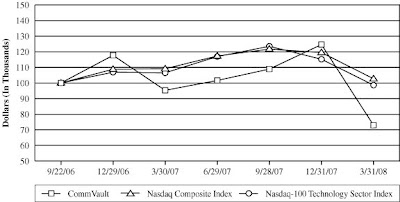
"Investors with a two-year horizon might start looking at this stock again as a deep value play,” said a food analyst last month about Smithfield.
Unlike the pusillanimous poltroons who call themselves Wall Street analysts, the 10Q Detective will avoid pulling a 'Henry Blodget'; we do not worry about potentially losing millions in investment banking business (and being locked out of six-figure bonuses) if we disenfranchise management by saying "pigs will fly."
The reality is that the fundamentals are deteriorating rapidly at Smithfield and hog prices are not expected to stabilize until the second half of calendar 2009. The 10Q Detective bluntly states that chances are good that if recent Asian investments fail to revitalize the company’s profits, Smithfield could go belly up within two to three years.
Talking Points
- There is too much debt on the balance sheet, with $3.47 billion in total debt as of April 27;
- The company would have been in violation of debt covenants had it not received approval for a reduction in the interest coverage ratio from 3.0:1 to 2.0:1 (good until the end of fiscal 2009);
- Total debt-to-stockholder equity of 114 percent excludes an additional $1.19 billion and $408.9 million due in one to three years, respectively, for hog purchase agreements and hog farmer service contracts;
- Smithfield guarantees up to $95.5 million for the financial obligations of certain unconsolidated joint ventures and hog farmers; and,
- The pension and retirement benefit plans are underfunded by about $178.6 million, which included "assumed gains" of $61.5 million in fiscal 2008.
Operating Metrics
An aggressive vertical acquisition schedule in recent years—aimed at providing a stable supply of raw material to its pork segment and providing a boost to the bottom-line from value added processed meats—is proving to be more disruptive than profitable. This business strategy has failed miserably, with the operating margin falling two hundred basis points over the last two years to 1.9% for the fiscal year ended April 27, 2008.
In addition, weighted average cost of capital of 6.5% exceeds trailing twelve-month return on assets by 470 basis points.
Corporate Governance
Named Executive Officers are the only hogs making money at the company.
A review of the Annual Proxy Statement filed last Friday indicates that Joseph W. Luter III, Non-Executive Chairman of the Board, and C. Larry Pope, Chief Executive Officer, are shamelessly slopping at the bonus trough, even in lean years.
Luter, who served as CEO until August 2006, received a monthly salary of $83,300 plus an annual bonus of $4.2 million in fiscal 2008 for providing consulting advice to Smithfield "on major acquisitions and the execution of the company’s commodity hedging strategy."
The Board rewards Pope the equivalent of 1.5 to 2 percent of Smithfield's net profit exceeding $100 million, the proxy said. He took in $4.89 million during fiscal 2008, of which $1.10 million and $2.43 million were for salary and cash bonus, respectively.
The 10Q Detective has already commented on the worth of Luter's advice and Pope's stewardship—take a look at the aforementioned operating metrics.
Intrinsic Value
Contrary to the stated tangible book value of $13.30 per share, the 10Q Detective calculates the intrinsic value left available to stockholders if the company fails to be nil.
Inventory and property, plant and equipment comprise about 26 cents and 33 cents of each dollar in assets, respectively. In any reorganization plan, assets would be auctioned at a significant discount to actual value. And, as investors know, bondholders get paid before stockholders.
You will not fly today.
You will not fly tomorrow.
You will never fly! ~ Children’s writer Mo Willems (Today I Will Fly!)
Risks to our target price include increased accessibility to Asian markets, lower feedstock costs, and a visible turnaround in supply/demand hog imbalances.
Editor David J Phillips does not hold a financial interest in any stocks mentioned in this article. The 10Q Detective has a Full Disclosure Policy.













